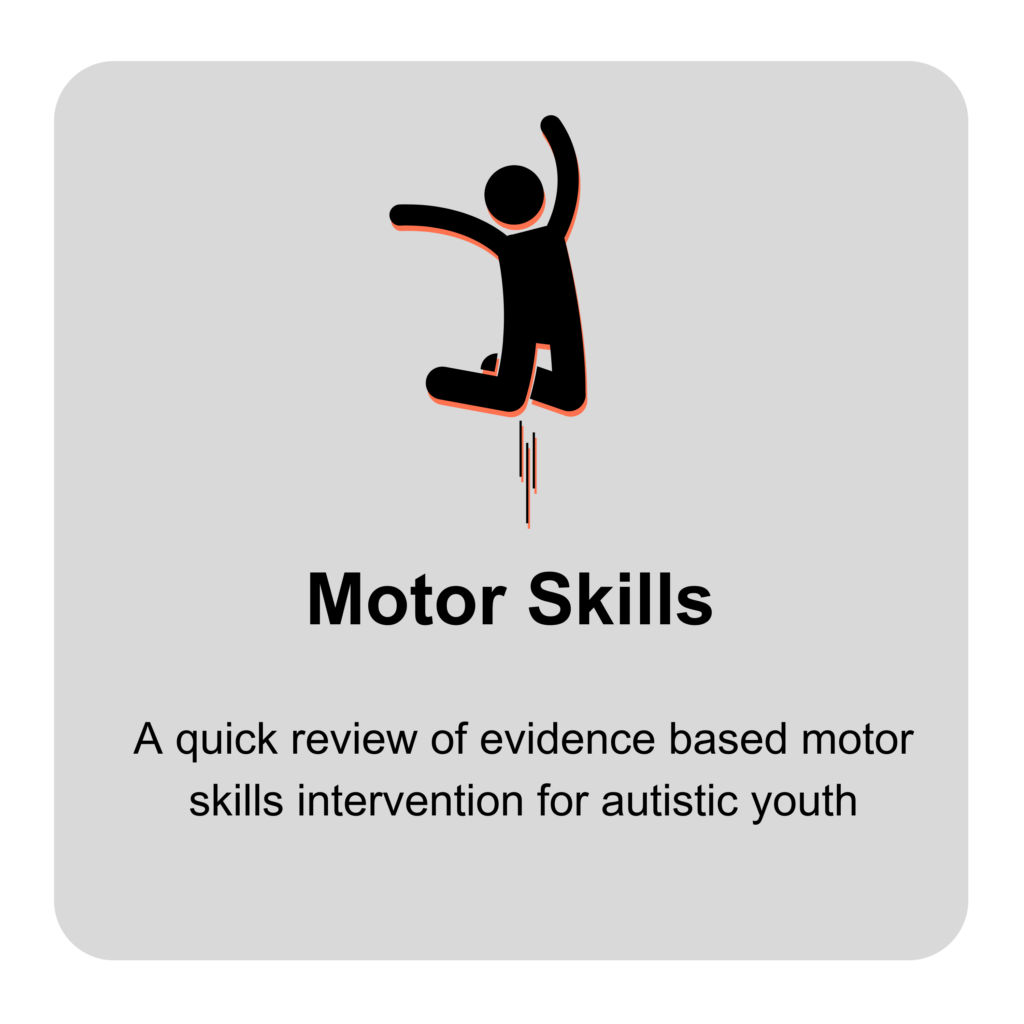This info was based off of a quick literature search and is not likely fully complete. Regardless, some good data to inform practice.


Type of study: Systematic review
Many different types of motor interventions improved the motor abilities of children with ASD:
- Motor activity (gymnastics, soccer, etc)
- Motor skill (throwing and catching)
- Aquatic (swimming)
- Horse riding interventions
- Video gaming intervention (e.g. Wii Fit)
- Physical education intervention (e.g. small groups that are a part of their academics)
What skills were developed was based on the type of activity. E.g. body coordination/ balance improved with motor activities, motor skills and horse riding.
Visual learning was a helpful strategy for supporting youth

34 students, 60 min per day, 2 days per week for 12 weeks participated in a Motor Skills Intervention Program (MIP).
“(i) immersive movements consisting of warm-up movements such as walking, running and jumping (5 min)
(ii) functional exercises that improve joint mobility and flexibility to prepare the body to practice the targeted skills (5 min)
(iii) individual and group activities focusing on 3 developmental areas (motor skills, social skills and pre-academic skills) based on basic movement skills (40 min)
- motor skills (throwing, catching, running, jumping, etc.)
- pre-academic skills (geometric shapes, colors and numbers)
- social skills (greeting, waiting for one’s turn, making friends, cooperating, etc)
(iv) whole group activities consisting of games that reinforce skills for the targeted developmental areas and increase interaction (10 min)”




Interview with 51 parents of children 3-10 with ASD
- The movement has to be enjoyable!
- Active parental involvement is helpful in getting youth engaged
- It was also helpful to have a team with professionals to help adapt or provide individual support when needed

Not specific to motor but a great reference to have

Be sure to reference article to understand the category of evidence based practice
Notes of evidenced based interventions for motor interventions (including all age groups)
- visual support
- video modelling
- time delay (for prompts)
- technology aided instruction and intervention
- task analysis
- sensory integration
- response interruption/ redirection (when distractions occur)
- reinforcement
- prompting
- parent implemented intervention
- naturalistic intervention
- music mediated intervention
- modelling
- functional communication training
- exercise and movement
- differential reinforcement of alternative, incompatible, or other behavior (use of positive consequences)
- augmentative and alternative communication
Can you be more specific about the content of your article? After reading it, I still have some doubts. Hope you can help me. https://accounts.binance.com/ro/register?ref=HX1JLA6Z